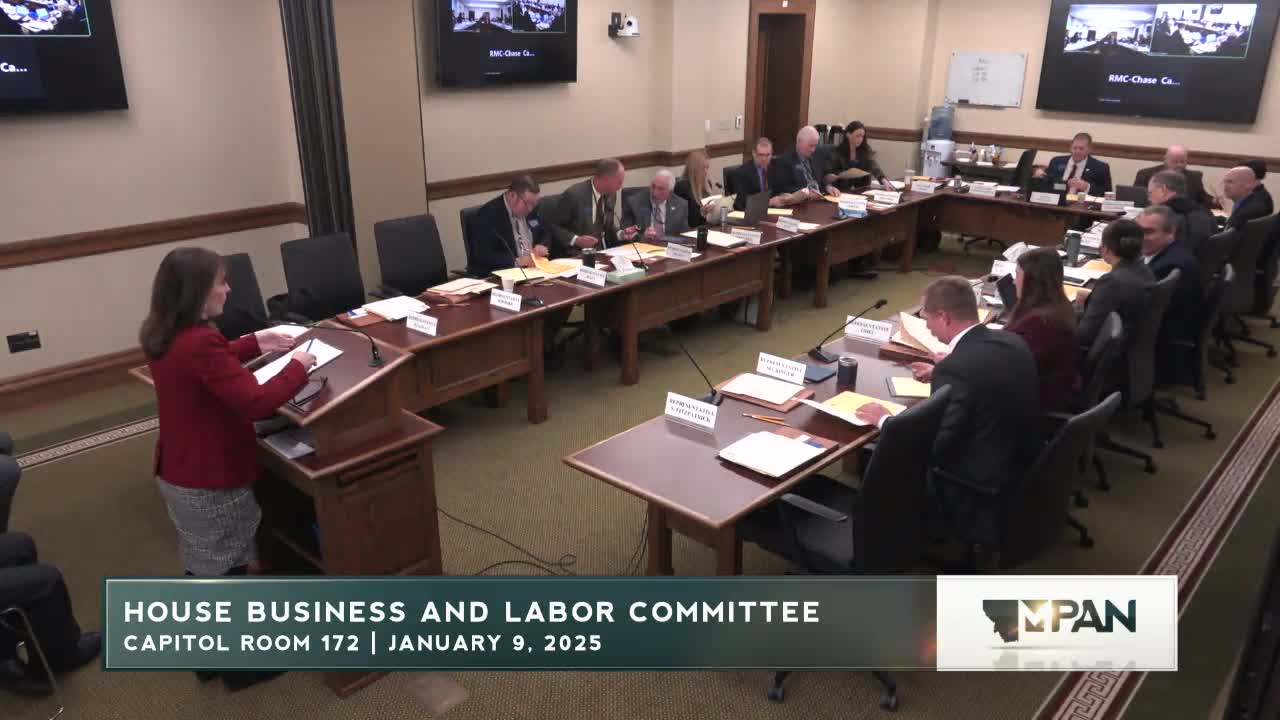Bill would give state auditor access to tax records to help detect fraud; department of revenue supports measure
Get AI-powered insights, summaries, and transcripts
Subscribe
Summary
Representative Marta Bertoglio said House Bill 94 would amend Montana’s tax confidentiality laws to let the commissioner of securities and insurance access taxpayer return data and employer withholding reports to detect and investigate fraud and noncompliance.
Representative Marta Bertoglio presented House Bill 94 on behalf of the state auditor, saying the measure would amend Montana tax confidentiality laws to permit the commissioner of securities and insurance to receive taxpayer return data and employer payroll withholding reports for investigations.
"The intent of the bill is to enhance the enforcement capabilities of the commissioner of Securities and Insurance by granting access to confidential taxpayer data," Bertoglio said, framing the change as a tool to detect, prevent and investigate noncompliance, fraud and abuse under state securities and insurance law.
Frank Cote of the State Auditor’s Office supported the bill and described how current practice requires the office to seek investigative subpoenas when Department of Revenue data is needed. "This would allow us to avoid having to go through that process," Cote said. He noted that the state fund already has statutory access to Department of Revenue information for workers’‑compensation fraud investigations and argued the auditor’s office should have a comparable tool.
Tony Zammit, deputy chief legal counsel at the Department of Revenue, testified in support on behalf of DOR. He said fraudsters often use multiple tactics (identity theft, false returns) and that sharing information with the auditor’s office in specified investigatory circumstances would help protect Montanans. "This is an important bill that provides another tool in CSI's tool belt," Zammit said, adding the agencies had worked on language together and that DOR staff will remain bound by confidentiality rules when handling records.
Committee members asked how DOR data would connect to criminal prosecution. Cote said the auditor’s office is a criminal justice agency that prosecutes certain matters; instances involving the state fund historically have been prosecuted by the Department of Justice. Zammit explained the bill amends statute 15‑31‑2618 (tax confidentiality) and that other statutes already create limited exceptions and channels for specified agencies to receive tax data.
No opponents testified. Committee members followed up on technical statutory references and asked the agency witnesses about safeguards and precedent; the witnesses said current confidentiality protections remain in place and the measure is narrowly tailored to investigatory needs.
The hearing concluded with a sponsor closing emphasizing consumer protection and enforcement. The committee did not take a recorded vote at the hearing.
